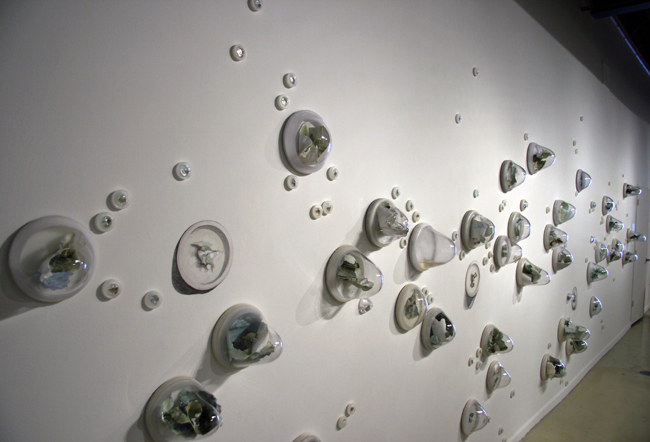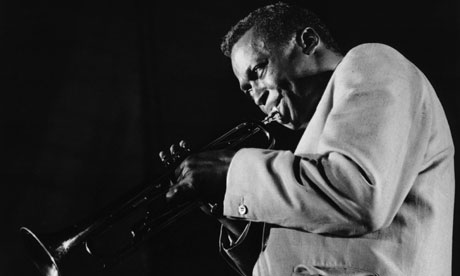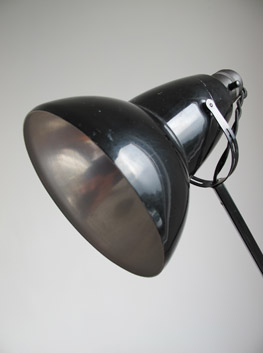The Sunset - Directed by and starring Tommy Lee Jones with Samuel L Jackson
Just the two of them one called black and one called white. That's it. Black calls white the professor.

Having tried to kill himself, the film starts and remains within the one room of black's apartment in a ghetto area of New York. The sense of the bigger world is felt through sounds of vehicles or neighbours - they are mere suggestions that fade when the intensity of the discussion between life and death conversations.
It's a debate about the reasons to live life or choose death. God versus the devil perhaps?
The intracacies of the discussion are compelling. Especially coming from a very dark mood today.
Black enquires "Is this the life you planned to have?"
It's certainly not but I no longer know what I would have had planned. It's not this.
"I don't think death is ever about nothing."
Wanting to die is not so much about want to be dead but more about giving up on living.
"I have become the accomplice to my own anihilation. Every door closes as we come across it until there is only one door left. I long for the darkness. I pray for death, real death. Nothing ness, no people. Kafka on wheels"
"Evolution has brought intelligence to life - so unless a dumbass - those that are enlightened should wish to die as as soon as possible"
I really think this too. The more aware I become the more disillusioned with everything I become. I am sort of half in and half out. Nothing matters anymore yet I cannot sit without having things or going places. Then there is the need to finance any visits to galleries or places. And yet it really is of little value.
white says "You give up the world line by line....everything you do closes a door somewhere ahead of you. And finally there is only one door left".
Everything ends in loss, pain, suffereing, indignity - everything ends in death.
White asks "why would Jesus try to salvage what is unsalvageable? Why one has to be in a building that is spiritually and morally vacant rather than a building that is just vacant. Just to be there in the hope of saving someone from their plight. Yes I can relate to that - when someone says to me that I have been through what I have been through and can now help others to recover. Is that reason enough? Is it reason enough to know that another child is being abuse as I write and you read this>?
Black posits that "Jesus said you could have life everlasting - see it hold it in your hands it gives off a light - warm to the touch and it's forever. You can have it now today.
To get it you got to take your brother in your arms and hold him whatever and whoever he is ...."
Well I can forgive. I am more forgiving of my dad, other people who I have felt hurt by. I can. Does it make any difference? Yes I suppose there is some degree of peace. But it is disappointing that it has to be this way. I try to emabrace every client despite the difficulty I might have. I see beyond their denial and love them anyway. I hope for them. Yet I come home and want to be able to leave this world. It's disappointing that they have to learn through so much suffering and others suffer along side too.
I don't understand you see. Speaking with my auntie and hearing how very ill my cousin is, yet living with hope and looking towards her recovery. She is having a colostomy bag fitted so that they can opeate on the tumor which is pushing on her bowel. By operating on the Cancer they are likely to destroy some of her bowel. My auntied said she is really very unwell. And very thin, she cannot really eat. Yet she still wants to go to see Take That next week. Her husband is running around trying to sort out anything she has a whim to do. Auntie O says my uncle is very tearful and that is very unlike him. My cousin is not thinking negatively. This is very serious.
All I could think of was how I want to be dead and she wants to be alive. My mum is dead so it just makes sense that somehow it could be switched over. I could be thin then too and not need to worry about being so fat and ugly. It would soon be over. Why not? Because it doesn't seem to happen like that.
White says "...my own reasons centre around the gradual loss of make believe, a gradual enlightenment as to the nature of reality." This I can relate to. The reality or the enlightenment means the road gets narrower and it makes it more and more difficult to have a reason to stay and live in it.
"The world s a forced labour camp ... the be led forth to be executed. It's the way it is"
For example, I ralise that so many people are unable to cahllenge their demons. So for example in relationships with men. I know today I would like to be someone who is respectful and loving. Someone that can be loved and wants to be giving. I also want someone who is monogamous and in the true sense of the word, challengeing any temptation or desires outside of the relationship. Not needing to lie because actually he is honest and open and dependable. He would also be spntaneous and be able to be transparent about everything. Within that we would be able to hold each other in all emotions and not be frightened off by anger or fear or sadness. It woud be working towards unconditionality (if thats a word). Supportive,fun, reliable, spontaneous, adventurer, sensible with money but not mean, creative and intelligent, open to learning and growing.
The thing is this seems to be impossible. And then there is me within this. I am bi-polar in many sesnes of that. So to meet someone who would be willing and able to manage with me. ... well the road narrows you see. As today I do not want to just try and tolerate things that don;t match only to eventually end and hurt etc. I know there is experimenting with relationships to learn what is important but ...
It's the same with everything really. You know here I am opening talks with my dad but unable to tell him how dreaful I am feelng today. That stinks. So I know how fragile I feel about the contact. And it all seesm so alte. I feel dreadful for the shit that has been the past and there is nothing that can be done about it today. I am changing every day but it all seems too late really.
I want less things. Studd means less yet I am ensconced in this society of more more more. It all seems very usnatisfactory especially knowing more and more that it all matters less and less. So I am beginning to let go just as white said in the film.
The more I let go the easier it is to let go completely and leave this world. I do not want to stop letting go otherwise I will have to stay and be in the pain of disatisfaction. "the one thing I won't give up is giving up".
I say that I do feel passion at times. I have felt intense emotions looking at someone's art or listening to music written and played so incredibly. But these things are transient therefore the moment is frail.
What I get is this ..... the things that I value really have no value. So to go out and appreciate some works of art, or see an illustrated letter that was so exquisite, to listen to a piece of music that raises goosepimples, to speak to my dad fanlly but still not be able to tell him how I really am, yet it doesn't matter I have forgiveness. All these thigns seem so valuable but actually they are nothingness in the grander scheme.
A review of the play rather than the filmed play I have just watched .....
The Sunset Limited
by Cormac McCarthy
This book is described as 'a novel in dramatic form'. I'm not sure what that's supposed to mean but if it looks like a duck and quacks like a duck, then it's a duck. By which I mean: it's a play. Now, I'm a firm believer that plays should be performed rather than just read, which is why I have only ever reviewed productions of plays rather than the texts themselves. Picador's presentation of this play as a novel invites me to do just that however and in fact the structure and content of the play mean that whilst it would certainly be nice to see it performed there's plenty to say about the text itself.
Originally performed by Steppenwolf Theatre Company back in 2006 the play is a duologue, and a dialogue in the classical sense between two men, Black and White, an African-American and a Caucasian. It seems that White has been rescued by Black from a suicide attempt in front of the train of the title and in Black's apartment the two men talk, Black attempting to extricate from White the reasons for his leap into oblivion whilst he also discusses his own life and faith in the Bible. We could accept the play at face value; Black an ex-convict with a violent past, who has made his room open to junkies in need of help, has another project in White, a man he doesn't want to let go until he's sure that he won't throw himself in front of the next train that happens along. But the character names and didactic structure invite us to see the apartment as a kind of limbo with Black fighting to save the soul of White from damnation. The two men wrestle with the big themes, Black using the Bible as his touchstone ('If it aint in here then I don't know it') and his faith in humanity, despite his own violent past, as the main force to try and help others. White, who had placed his own faith in Culture, if anything, has been left bereft - 'The things I believed in dont exist anymore. It's foolish to pretend that they do. Western Civilization finally went up in smoke in the chimneys at Dachau but I was too infatuated to see it. I see it now.'
For much of the play Black holds sway, dominating with his conviction and calmness in the face of White's rationalism. But there is a volte face near the end where White suddenly steps up to the mark and flattens all that has come before with his own conviction that 'You give up the world line by line....everything you do closes a door somewhere ahead of you. And finally there is only one door left'. This makes for pretty bleak reading of course but bleakness never stopped Beckett from being a theatrical genius. There are obvious comparisons with plays like Waiting For Godot, but you're always going to struggle when sitting alongside one of the greatest plays ever written (IMHO). Having said that the play lends itself to textual appreciation I can't help but wonder whether a live performance would be able to lift it beyond a mere recitation of arguments. There is no action to speak of - Black does get up from his chair at one point to make some food (never has soul food been so literal) but other than that it's just two men sat at a table. Again, there's no action in Godot beyond the entrance of Pozzo and Lucky, but the play's language is so rich in metaphor, symbolism and meaning - poetic and enigmatic - that it provides not just an evening's 'entertainment' but enough keep you going for a long time afterwards. The rather balder back and forth of argument in this play leaves you wishing for something a little more theatrical or dramatic, something with a little more character (perhaps this is what is meant by a novel merely in dramatic
form).
There is McCarthian violence as you might expect although this is only reported rather than depicted. This play is all about what's on the page and to be fair there are some smart exchanges between the two men. The humanity of Black also has a curious effect on a play so bleak. He is gentle and warm, confident in his own faith and presumably in his ability to turn the situation around so that there is almost a smile, some humour, behind what he has to say to White. But the crushing weight of White's world view has a huge impact on the play. 'The one thing I won't give up is giving up', he says, and this because he has been left no alternative by his awakening to the real world around him.
I don't believe in God. Can you understand that? Look around you man. Can't you see? The clamor and din of those in torment has to be the sound most pleasing to his ear.
The most difficult thing he thinks for Black to hear is his view of what those with faith look to as their reward.
I yearn for the darkness. I pray for death. Real death. If I thought that in death I would meet the people I've known in life I don't know what I'd do. That would be the ultimate horror. The ultimate despair. If I had to meet my mother again and start all of that all over, only this time without the prospect of death to look forward to? Well. That would be the final nightmare. Kafka on wheels.
So I'm going to revert to my former opinion. Plays have to be seen, not just read. There is plenty to chew over in this book but it never really lifts off the page and at the end of the day, for all its dramatic form, it remains the articulation of argument rather than character and too far away from the humanity it seeks to explore.
Written by William Rycroft
Bliss




 Original designs for the Anglepoise 1209, 1933
Original designs for the Anglepoise 1209, 1933


